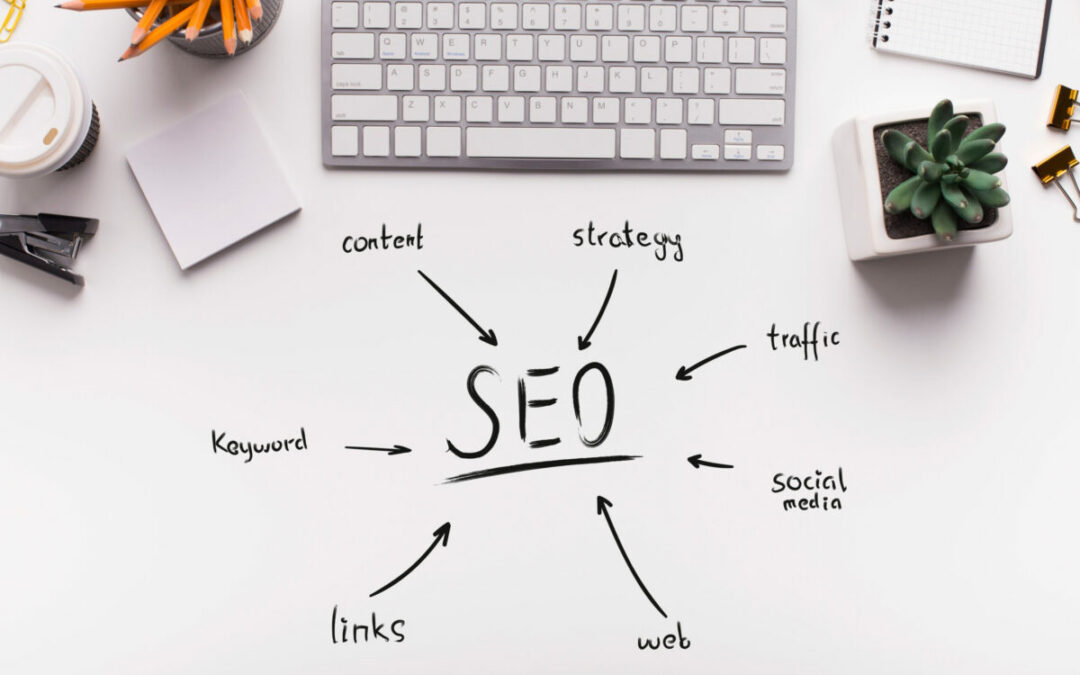In today’s digital age, having an online presence is crucial for businesses of all sizes and industries. Business-to-Business is not an exception. In B2B marketing, a company’s website is often the first point of contact for potential customers. Therefore, Search Engine Optimization (SEO) is essential for B2B firms to improve the visibility and reach of their business website.
SEO is the process of optimizing a website to improve its ranking on search engines such as Google, Bing, and Yahoo. It can also help businesses reach their target audience, drive more qualified leads to their website, and improve their online presence. All of this makes SEO an essential part of B2B marketing strategies. Continue reading this blog post to learn more about the role of SEO in B2B marketing –
What is B2B Search Engine Optimization?
The practice of using various techniques for optimizing web content to rank in Google search results is known as Search Engine Optimization (SEO). The three general categories of SEO are –
- ● Technical SEO – It covers the optimizations you make to the backbone of the website, like XML sitemap, load speed, and design.
- ● Content SEO – The practice of using research to understand the needs of the target audience to create relevant content is content marketing for SEO.
- ● On-Page SEO – It includes the optimization of the content, like meta description, title tag, and alt text on images. Additionally, it is also about structuring content such as blog posts to make it relevant to users.
- ● Off-Page SEO – As the name suggests, off-page SEO covers all the activities you do outside the website to improve your search engine ranking. This is also referred to as backlinks.
Differences Between B2B SEO and B2C SEO
B2B (business-to-business) SEO and B2C (business-to-consumer) SEO both aim to optimize the website for search engines, but there are some key differences –
- ● The target audience for B2B SEO is other businesses, whereas B2C SEO targets consumers.The time spent by the prospects in each stage is much longer in the B2B funnel.
- ● B2B target audiences are typically smaller and more specialized. But, the buying process in B2B business is more complex as it involves multiple decision-makers.
- ● B2B keywords are more specific and technical compared to B2C keywords. On the other hand, B2C keywords tend to be more focused on consumer needs and desires.
- ● B2B content is informative, and it aims to educate the target audience about a specific product or service. But, B2C content is focused on appealing to emotions and creating a sense of urgency. You can also use B2B marketing frameworks to plan an effective content marketing strategy.
- ● B2B link building requires reaching out to industry-specific websites and influencers. The B2C link building is more focused on building brand awareness and promoting content on social media and other platforms.
- ● B2B websites have a lower conversion rate compared to B2C websites. Therefore, the optimization strategies for B2B websites are focused on educating and nurturing the target audience. The optimization strategies for B2C websites are focused on driving immediate sales.
Tips to Build an Effective B2B SEO Campaign
Building an effective SEO strategy is crucial for your B2B business plan. Below we have listed some tips that can help you –
- ● Create buyer personas
A detailed buyer persona is the first step in building an SEO strategy. It is the depiction of your ideal customer, which details who they are, their position, the decision-makers involved, and the industry. When you understand your target audience, you can craft content strategy accordingly.
- ● Keyword research
Keyword research is the backbone of B2B SEO strategy that guides content strategy and competitor analysis. Using the right keywords in the content helps Google determine where content should rank. However, you can use tools to find keywords that are relevant to your business. Pro tip – include keywords in the body copy, title, and headings of the content and place them strategically.
- ● Optimize website and pages
From the first stage of website designing, you should be careful about SEO. If your website is already designed, fret not! You can still improve it according to the SEO requirements. Focus on technical SEO and on-page optimization, which includes image compression, page load speed, and XML sitemap. The other important SEO includes – page title tags, meta description, content header, image alt tags, and backlinking.
- ● Build a content strategy
Another important part of the SEO strategy is creating relevant content for each sales stage. There are different forms of content, like videos, blogs, infographics, and case studies. It is advised to write evergreen content so that it remains relevant for years. Also, you can write content on trending topics. Ensure to update your blog post with fresh information and specific keywords.
- ● Promote the content
Creating and posting compelling content is good, but you will not get results without promoting it in the right way. You’ll have to put effort and time into promoting your content. Some effective ways for content promotion are – to encourage social shares, link it to other websites, use email outreach, and use link building to add links to your content.
Conclusion
An effective B2B SEO strategy requires a combination of keyword research, website optimization, high-quality content, link building, and ongoing tracking and optimization. We hope this post helps improve the search engine ranking of your business so that you can reach your target audience effectively. If you need more assistance in order to boost your digital marketing strategies you can reach out to Company Expert. Our B2B consultant can help build a marketing system that creates a sustainable and repeatable path to growth. Schedule a free consultation to learn more about our services!




